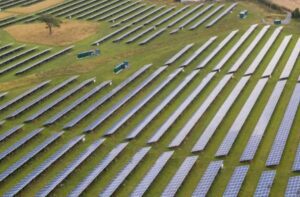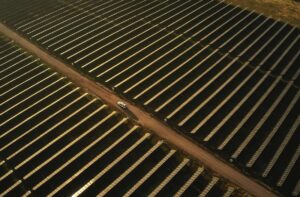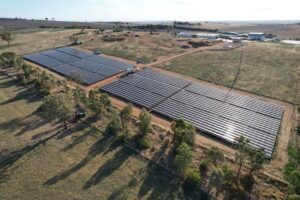Australian organic PV and perovskite solar cell (PSC) developer Dyesol claims to have made a significant breakthrough in perovskite stability for solar applications. The company claims to have produced 1cm squared perovskite cells, at around 10% conversion efficiency, which can with stand accelerated degradation testing for over 1000 hours.
 Perovskite PV applications have been one of the most-hyped areas for next generation PV technology in recent years, with researchers having achieved startlingly fast conversion efficiency increases. It has, however, been plagued with stability and durability issues, with the material sensitive to moisture contact and high efficiency perovskite cells exhibiting high degradation rates.
Perovskite PV applications have been one of the most-hyped areas for next generation PV technology in recent years, with researchers having achieved startlingly fast conversion efficiency increases. It has, however, been plagued with stability and durability issues, with the material sensitive to moisture contact and high efficiency perovskite cells exhibiting high degradation rates.
Dyesol claims to have made a significant breakthrough on small perovskite solar cells, with “meaningful numbers” of 10% efficient strip cells exhibiting less than 10% relative degradation when exposed to continuous light soaking for over 1000 hours. The cells were encapsulated and tested at full sun intensity for this duration and exhibited relatively low degradation levels, Dyesol claims.
Dyesol has not released what form of encapsulation was used for the cells tested. Both flexible and traditional glass encapsulation is suitable for PSC applications.
“This achievement gives us confidence to accelerate development and scale-up of our preferred low cost and easily produced PSC technology architecture, as we’ve now reproducibly, both within and between batches, proven that the system is inherently photo-stable in larger 1 cm2 cells with high efficiency of >10%,” said Dyesol CTO Damion Miliken in a statement. Miliken added that the company has developed “significant internal IP along the way.”
The Australian company is not alone in looking to commercialize the promising PSC technology, with the UK’s Oxford PV continuing to work on its perovskite technology in tadem applications with conventional c-Si solar cells. In tandem applications, perovskites can deliver a significant efficiency boost to conventional solar semiconductors, taking them beyond the limitations of c-Si or thin film cells currently in production.
Dyesol says that the PSC strips that performed well in the accelerated degradation testing are produced using the company’s, “low-cost, scalable, carbon-based PSC architectures.”
Dyesol will present its findings at the Swiss Photonics Workshop on Lifetime and Reliability Issues tomorrow.
Source: PV j. Reproduced with permission.








